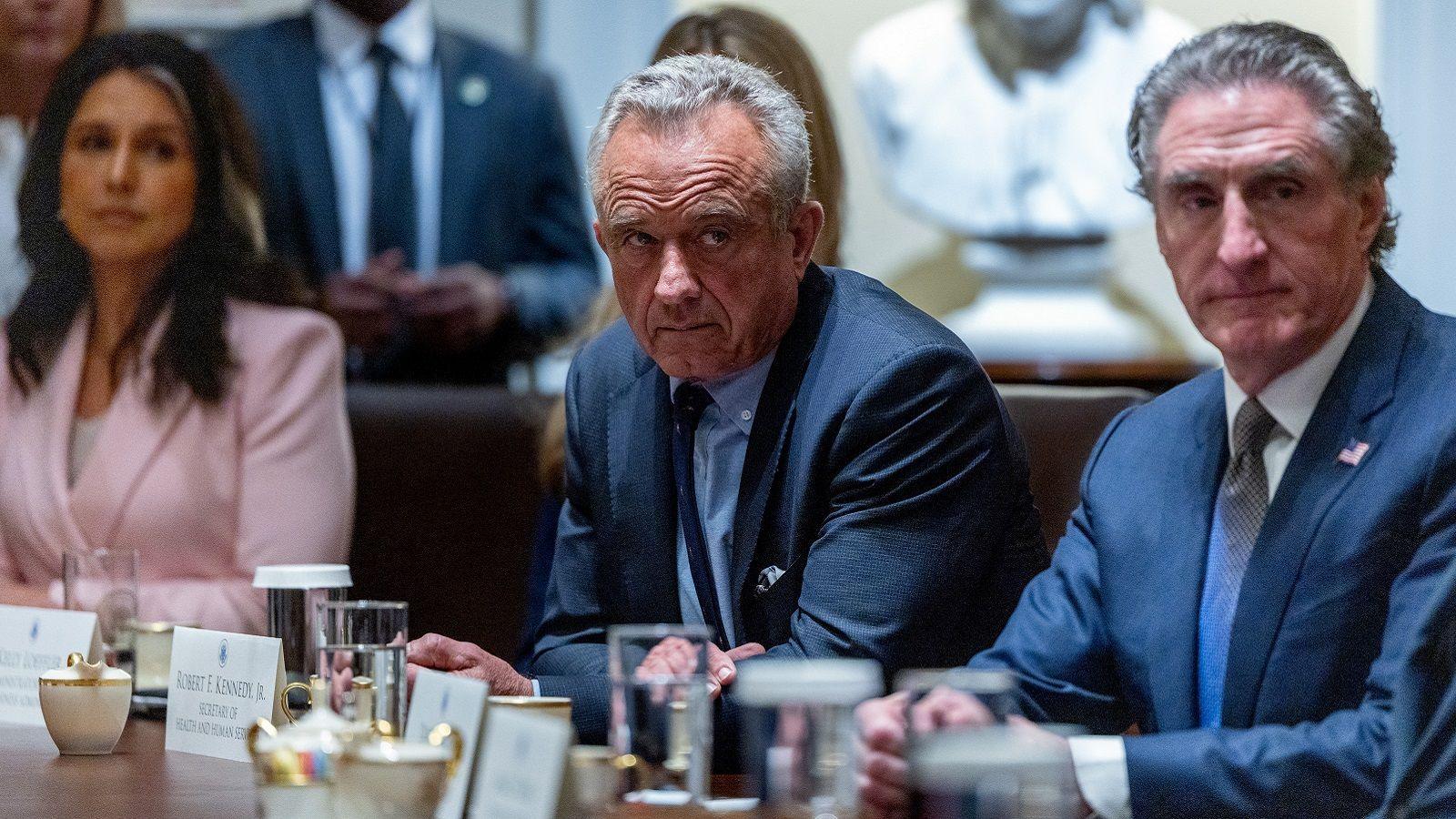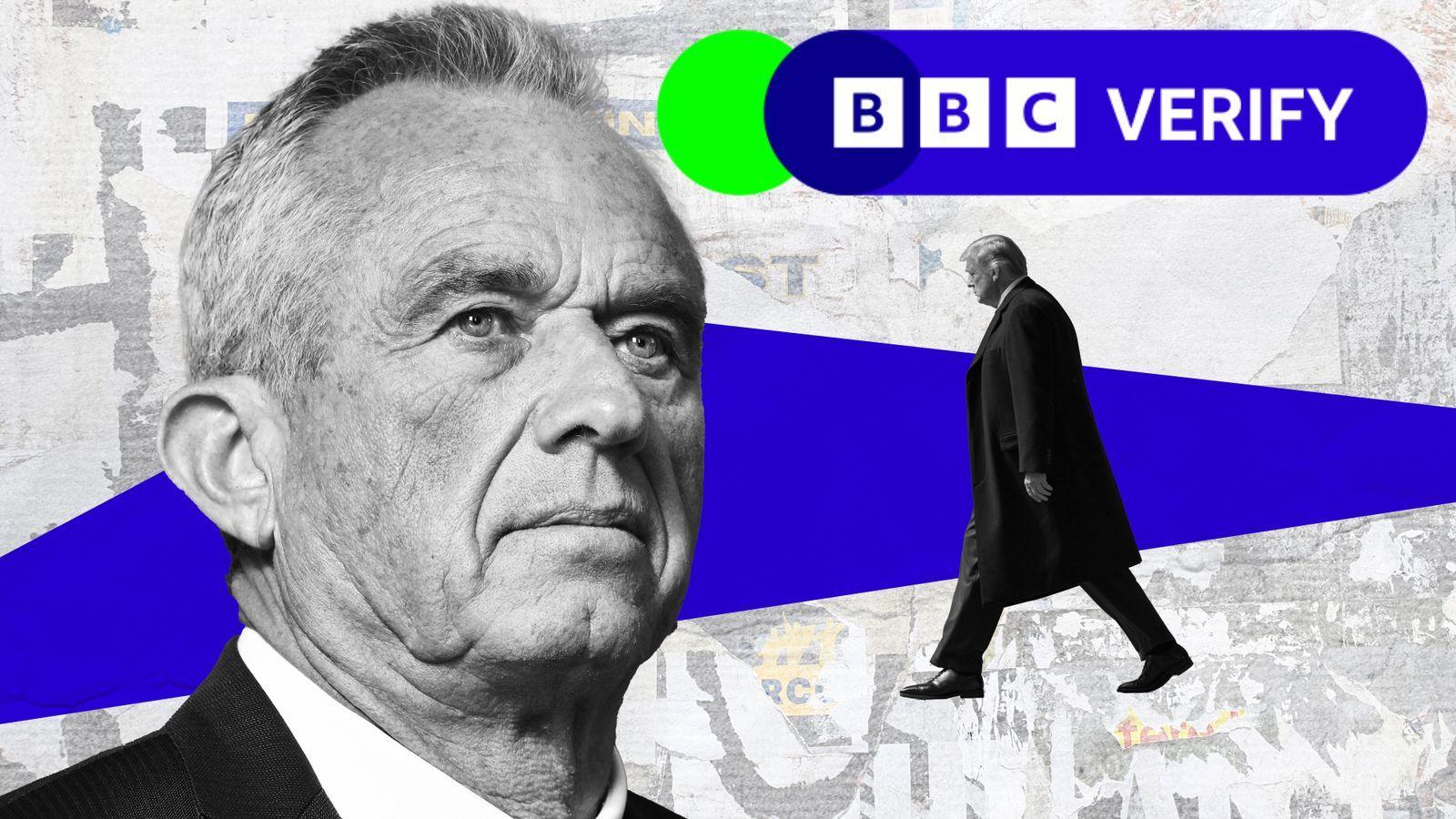Love on the Spectrum cast questions RFK Jr's comments about autistic people
Watch: Tilk brothers on autism, work and creating TikTok videos
- Published
Stars from the reality television show Love On The Spectrum went on the defensive after Robert F Kennedy Jr commented that people with autism make limited contributions to society.
People with autism "will never pay taxes, they'll never hold a job, they'll never play baseball, they'll never write a poem, they'll never go on a date", the US Health and Human Services chief said earlier this month.
The remarks drew widespread anger from people with autism who reject the notion of needing to be repaired, but also responses from those pushing for a greater understanding of autism.
"Autistic people have the same hopes, dreams and yes, the same awkward dating moments as anyone else," Dani Bowman, one of the television show's star's said to US media.
The reality TV star on the show, which is about a group of autistic adults' experiences dating, said Kennedy's comments were "completely false".
Since joining the Trump administration, Kennedy, who in the past has promoted debunked theories suggesting autism is linked to vaccines, has made autism a main focus. Autism diagnoses have increased sharply since 2000, according to the US Centers for Disease Control and Prevention (CDC).
That rise is, at least in part, attributable to increased autism awareness and an expanding definition of the disorder, scientists say. First recognized as a developmental disorder in 1978, autism is a spectrum disorder, meaning that symptoms vary by person. Some need little to no support in their daily lives, while others need a great amount.
Earlier this month, Kennedy pledged "a massive testing and research effort" to determine the cause of autism in five months. He did not give details on the project or funding it. He also said his department would investigate potential causes.
"Everything is on the table - our food system, our water, our air, different ways of parenting, all the kind of changes that may have triggered this epidemic," Kennedy later told Fox News.
Experts have warned that finding the causes of autism spectrum disorder will not be straightforward, and called the effort misguided and unrealistic.
The idea of curing autism is concerning for some.
"Wanting to cure autism implies that our way of being is wrong and it isn't," Ms Bowman told NewsNation. "We don't need to be fixed. We need to be supported. But the answer isn't erasing autism, it's building a more inclusive world for all of us."
Another star of Love on the Spectrum, James B Jones, attacked Kennedy's autism remarks on social media, calling them "extremely ignorant, and to be perfectly frank, downright offensive".
But not everyone agrees.
While advocacy groups focus on acceptance and inclusion they avoid "uncomfortable truths about children like mine", Emily May, who has a child with autism, wrote in a New York Times opinion piece on Friday.
"I have no interest in defending Mr. Kennedy, whose shaky science and conspiracy theories will do nothing to benefit those with autism and their families," Ms May said. "And yet, I think his remarks echo the reality and pain of a subset of parents of children with autism who feel left out of much of the conversation around the condition."
One of Kennedy's main false claims was that "autism comes from vaccines". Although he has denied many times that he is anti-vaccination and said he and his children are vaccinated, he has repeated widely debunked claims about vaccine harm.
The theory came from a study by Andrew Wakefield in 1998, but it was later retracted by the Lancet medical journal. Multiple studies since have concluded there is no link between vaccines and autism.
Despite her frustration, Ms May expressed admiration for Kennedy's "willingness to speak frankly about the painful parts of [her] child's life".
Autism Speaks, an advocacy organisation, said it has heard from parents with whom Kennedy's comments resonated.
"The language we use matters," Autism Speaks said in a statement to the BBC. "It should reflect current science and honor the lived experiences of autistic people, many of whom lead fulfilling lives and make invaluable contributions to their families, workplaces and communities."
Dr Manish Arora, founder of LinusBio who has spent more than two decades studying autism, noted that Kennedy's statements can be "very hurtful for families and autistic individuals".
But he also welcomed more research into the causes of autism and said increased attention is a "meaningful opportunity".
Still, he wishes the debate was "less polarising".
"Scientists should see the opportunity here, avoid the polarised discourse and see the opportunities here," Dr Arora told the BBC.
Jake Tilk, and his brother, Max Tilk, who is on the autism spectrum, largely avoid that political discourse in their social media videos where they share what their day-to-day life looks.
They share their lives online to create awareness and acceptance of autism, because the brothers want to celebrate neurodiversity, Jake Tilk told the BBC.
"It's most important that discussions about autism are grounded in science, compassion and most importantly the living experiences of people with autism themselves," he said.
Watch: RFK Jr says team will 'eliminate' exposures causing autism
Related topics
- Published11 April

- Published15 November 2024
